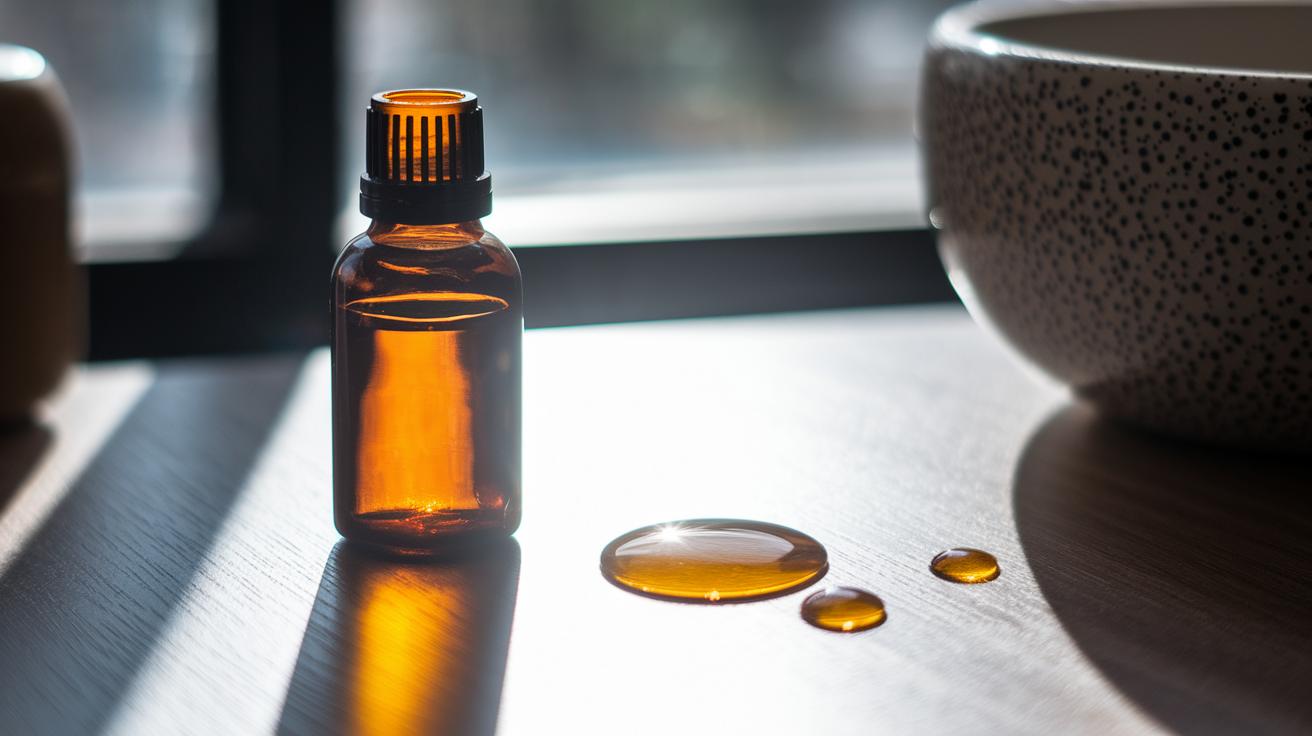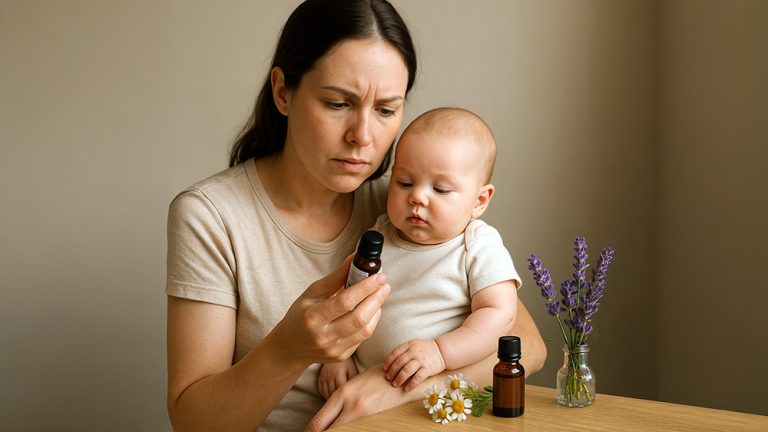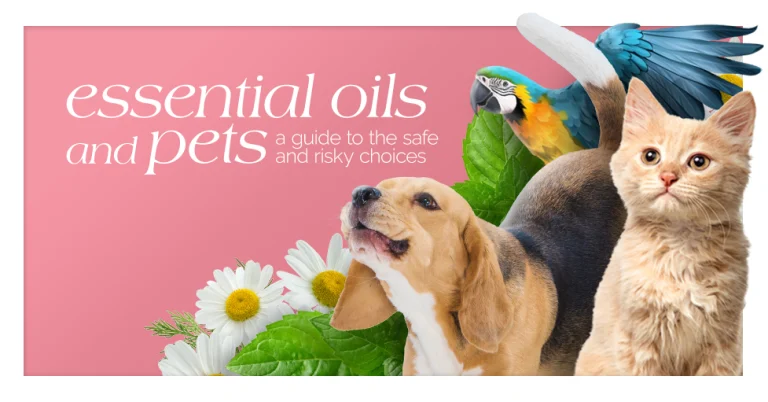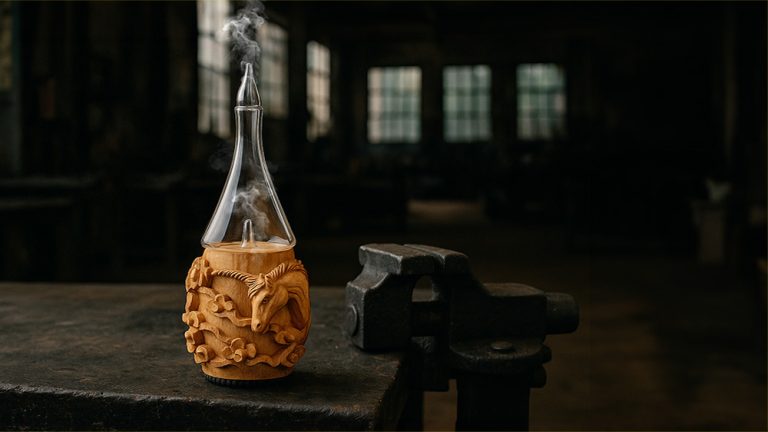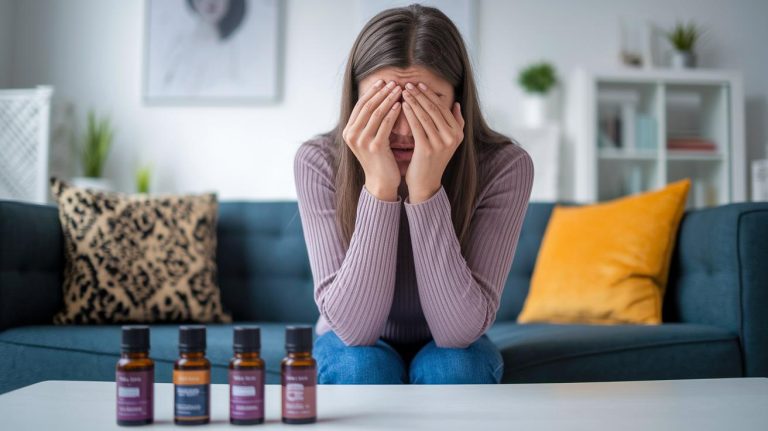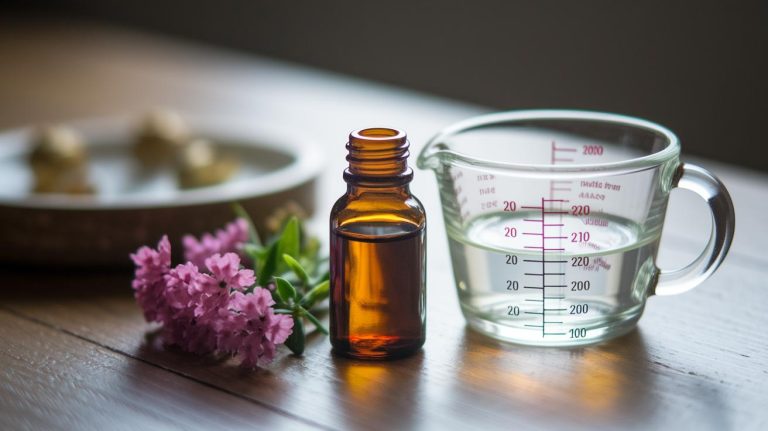5 Do Essential Oils Expire and Stay Potent
Have you ever found a bottle of Organic Aromas Lemon oil on your desk and wondered if it’s still fresh? It’s a bit like finding a loaf of bread you forgot in the pantry.
Essential oils come from plants and they’re delicate. They’re volatile (they evaporate quickly) and go through oxidation (a reaction with oxygen). That gentle evaporation and oxygen reaction slowly steals their bright scent. So over time your oil might feel weaker or less lively.
Have you noticed a muted aroma instead of that zesty lemon zing? In this guide we’ll show you why oils expire and how to keep them smelling bright and feeling potent.
Essential Oils Expiration Explained: How and When Oils Go Bad
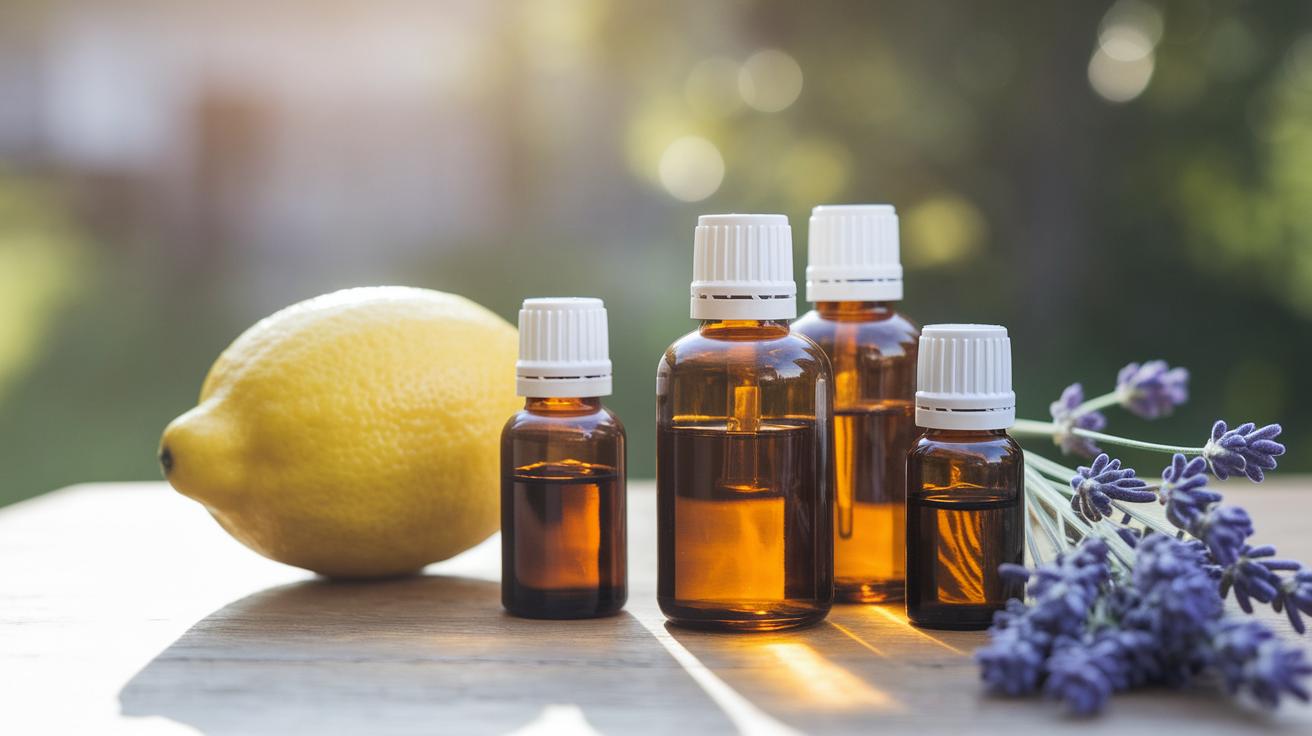
Have you ever wondered if your essential oils can expire? These plant powerhouses are volatile (they evaporate easily) and go through oxidation (a chemical reaction with oxygen). Slowly, gentle evaporation and oxidation steal away their strength, aroma, and soothing benefits. What once smelled bright and fresh can drift into a flat, faded scent.
Typical shelf lives:
- Citrus oils like lemon, lime, and bergamot stay vibrant for about 1–2 years.
- Sweet florals and herbals, lavender, eucalyptus, tea tree, hold up to 3 years.
- Rich, woody oils such as sandalwood, cedarwood, vetiver can remain stable for around 5 years.
Do oils spoil like food? Not really. They won’t grow mold. But ongoing oxidation can leave them smelling off, feeling sticky, or even shifting color. And those new compounds might irritate your skin or trigger allergies.
After an oil’s prime, you can still let it freshen your space in a nebulizing diffuser (how a fine mist delivers undiluted essential oils) if the scent still feels pleasant. But don’t skip a patch test on skin, you’ll want to dilute it in a carrier oil first. Here’s the trick to slow that clock: keep bottles in dark glass, tuck them away from heat and light, and seal them tight.
Key Factors That Cause Essential Oils to Expire
Every time you open an Organic Aromas bottle you invite oxygen (how oils lose freshness over time). Oxygen sparks oxidation (when oils lose their scent), shaving months off your shelf life. Have you ever noticed that first bright aroma turn softer? That’s oxidation at work.
Light (especially UV rays), heat and moisture also push oils past their prime:
- Light (especially UV rays) breaks down aroma molecules, so citrus scents fade faster.
- Heat speeds up tiny chemical changes, so a sunny windowsill is a no-go.
- Moisture can trigger unwanted reactions, making oils look cloudy.
- Clear bottles, a loose cap or a steamy bathroom all shorten oil life.
Next, tuck your bottles into a cool, dark spot to slow oil degradation. Decanting (pouring leftover oil into a smaller dark glass bottle) limits headspace air that fuels oxidation. And for extra protection, store them in a fridge set between 35 and 38°F. You’ll find your essential oils stay vibrant and fresh longer when you guard against these sneaky culprits.
Best Storage Practices to Extend Essential Oils’ Shelf Life
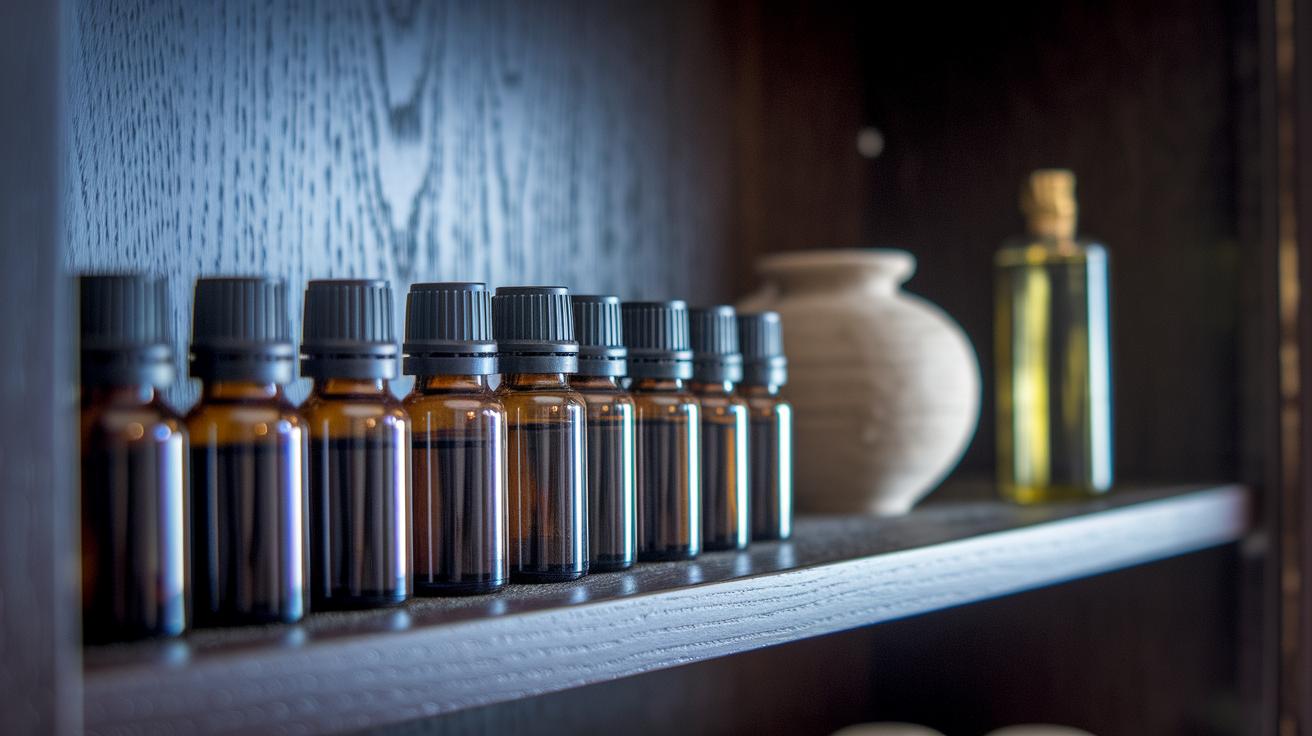
- Keep your oils in dark amber or cobalt blue glass bottles. They block UV rays that can dull your aroma’s ripple.
- After each use, seal the bottle tight. It locks in that fresh scent and slows oxidation (when oils lose fragrance).
- Tuck bottles in a cool, dry, dark spot, like a closet away from windows and steam. Or keep them in a small fridge set to 35–38°F, each in its own airtight container so food smells don’t drift in.
- As the oil level drops, pour it into a smaller glass bottle. Less empty space means less air dancing around and stealing your oil’s zest.
- Skip plastic and metal containers. They can leach chemicals or give your oils odd tastes.
- Hold the bottle in your palms for a few seconds before use. That gentle warmth turns cool oil back to liquid without harming its delicate scent.
Recognizing Signs Your Essential Oils Have Expired
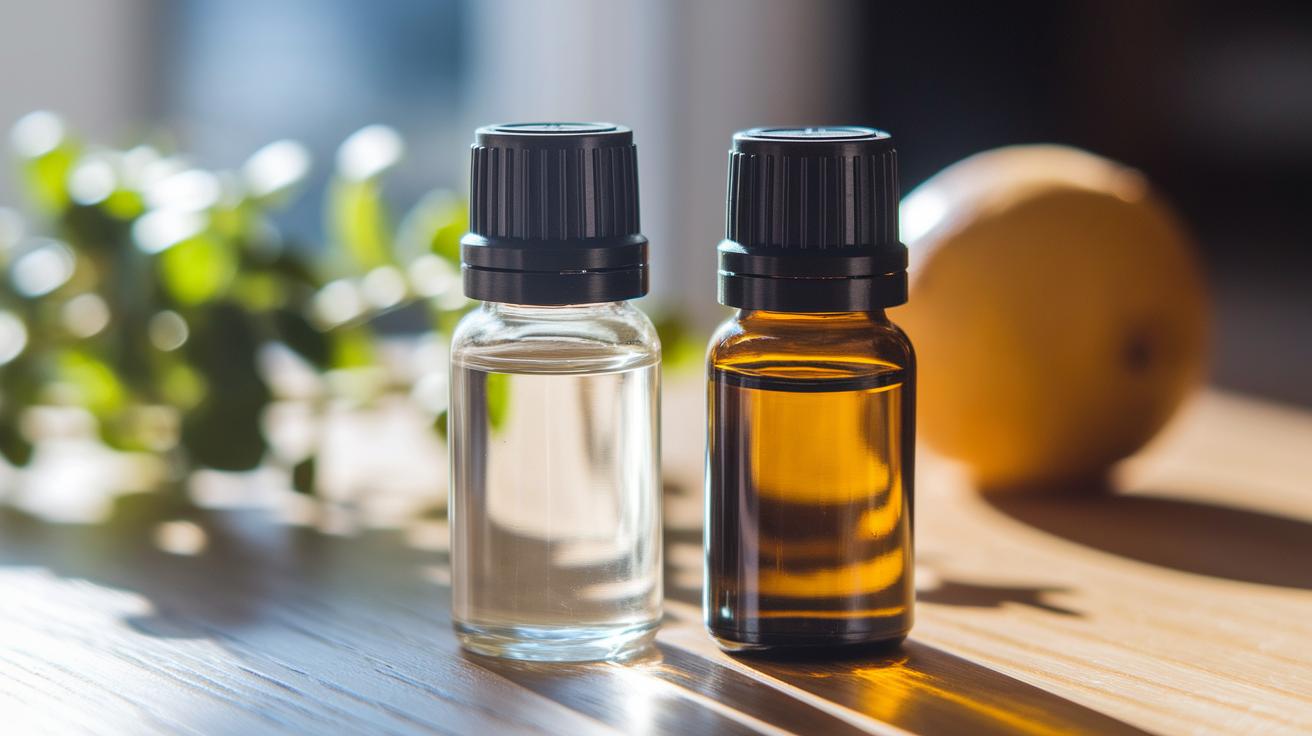
Have you ever popped open a bottle and felt the scent fall flat or even turn cloying? That sour, stale or rancid snap tells you it’s past its prime. And sometimes you’ll see a cloudy swirl or tiny specks drifting, oxidation (when oil meets oxygen and begins to break down) in action.
Here are a few clues your essential oil has lost its bright note:
- Aroma feels weak or smells sour, rancid, flat or just off
- Oil drags on your skin, leaves a thin film or feels tacky instead of silky
- Citrus oils turn cloudy or show white sediment settling at the bottom
- Clear oils darken to a yellowish or amber hue
Next, give each bottle a quick label with the date you opened it. Every few months, sneak a whiff and compare it to a fresh drop. Turning this into a little care habit helps you catch changes before they creep in.
If you spot any of these signs, pause before using that oil on your skin and stick to aromatic use only. Always test a small drop diluted in a carrier oil before you apply it. Or swap in a fresh Organic Aromas bottle and breathe in the full, bright aroma again.
Shelf Life Chart: How Long Common Essential Oils Last
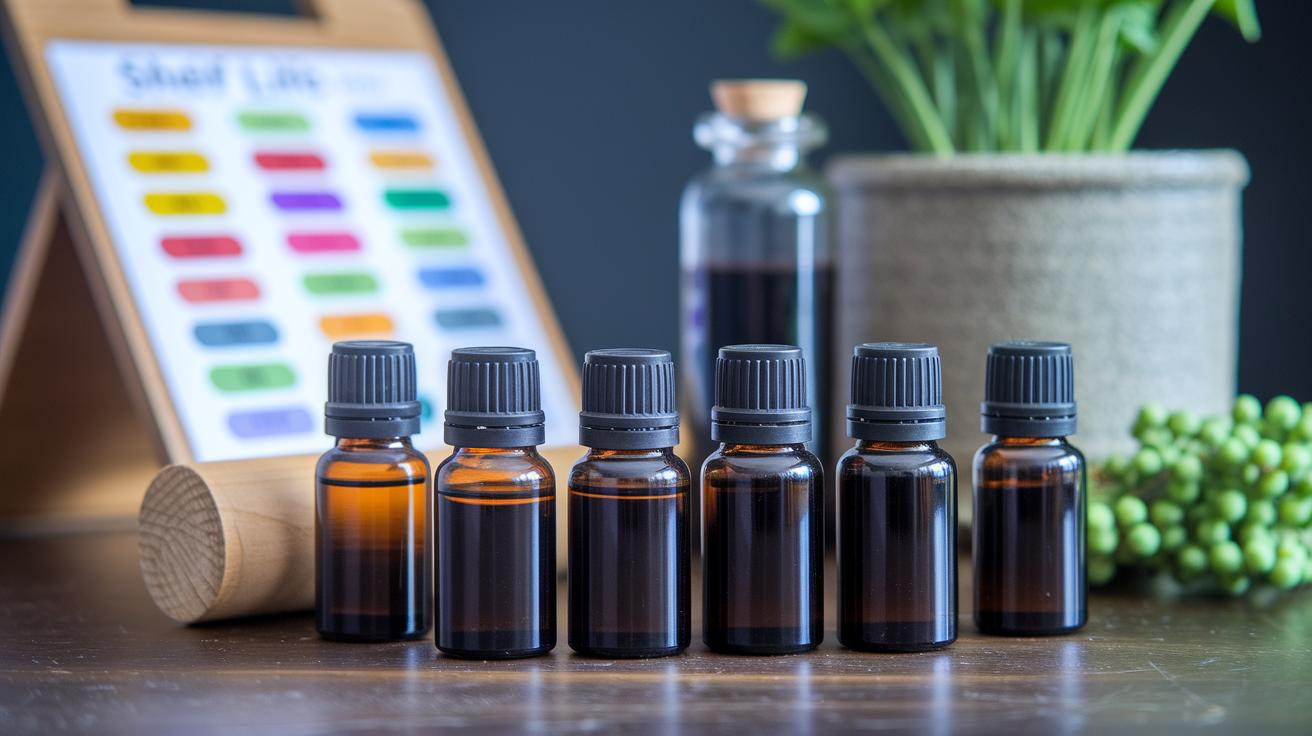
Ever noticed your oils losing their spark? Over time, they lose aroma and strength through oxidation (when oil meets air) and evaporation (when scent molecules drift away).
Here’s a simple guide to how long your favorite oils stay fresh:
| Oil Type | Typical Shelf Life | Notes |
|---|---|---|
| Citrus (lemon, lime, bergamot) | 1–2 years | Highly volatile, prone to cloudiness |
| Lavender, Tea Tree, Eucalyptus | 2–3 years | Medium volatility, moderate stability |
| Cardamom, Cinnamon Bark, Clary Sage, Myrrh, Vanilla Oleoresin | 3–4 years | Moderate stability |
| Peppermint, Cedarwood, Ylang Ylang, Wintergreen | 4–5 years | Good stability |
| Patchouli, Sandalwood, Vetiver | 6–8 years | Often improve with age |
Blends usually follow the shortest-lived oil in the mix, so keep citrus oils near the top of your recipe.
Notice cloudiness or a faded scent? It’s time to refresh that bottle. Tracking these timelines helps you enjoy each drop at its brightest.
Breathe it in.
Safe Use and Disposal of Expired Essential Oils
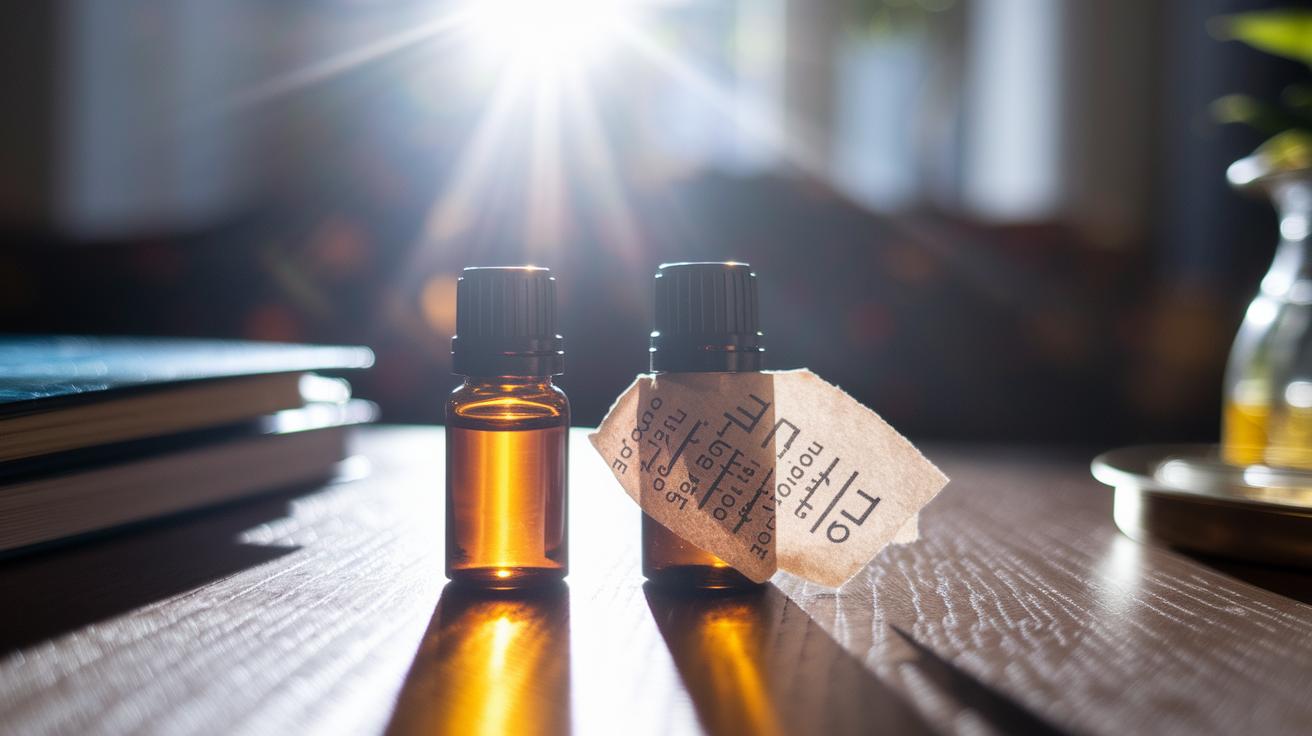
Ever wondered what to do with that half-empty bottle that smells a bit flat? You can still enjoy its gentle aroma in an Organic Aromas Mobile-Mini 2.0 nebulizing (how a fine mist delivers undiluted essential oils) diffuser if the scent still feels pleasant. But don’t put expired oil on your skin, it might irritate. Always do a patch test: mix a drop with a carrier oil and try it on your wrist first.
You might also give those tired oils a second life around the house:
- Add a few drops to water for a gentle cleaning spray
- Toss some oil on laundry or wool dryer balls for natural freshness
- Mix oil with water in a spray bottle to keep pests at bay
When it’s truly time to say goodbye, soak small amounts into cat litter or sawdust. Then seal it in a plastic bag and toss it in your regular trash. Never pour old oils down sinks or toilets, they can harm plumbing and waterways.
Empty amber bottles can shine again after a warm, soapy wash. Fill them with your own custom blends or donate them to art classes and community centers. Cleaning, repurposing, and recycling keep your home safe and honor our shared commitment to sustainability.
Final Words
We’ve explored why essential oils change over time and how oxidation (when oxygen slowly changes oil) and light can dull their aroma. You know the signs of an oil past its peak, from a sour scent to cloudy drops.
Then we covered smart storage steps, dark bottles, tight caps, cool spots, and walked through a shelf life chart of your favorite oils.
Finally, you got safe tips for using, reusing, or tossing old oils. Now you can answer do essential oils expire and feel confident keeping your home misting with fresh, soothing scents.
FAQ
What happens if you use expired essential oils?
Using expired essential oils can weaken aroma and therapeutic benefits. Over time, chemical changes might cause off scents or skin irritation, so avoid direct skin use without testing and favor aromatic applications.
Do essential oils expire if unopened?
Essential oils still expire even if sealed. Oxygen, light, heat and time break down volatile molecules. Most citrus oils last 1–2 years unopened, while woody oils like sandalwood can stay stable for 5–8 years.
How long do essential oils last once opened?
Once opened, essential oils age faster. Citrus oils remain potent for about a year, floral and herbal oils for 2–3 years, and woody oils like cedarwood or vetiver for up to 5–8 years with proper storage.
Can I use expired essential oils in a diffuser?
You can diffuse expired oils if they still smell fresh. Aroma use carries lower risk even if potency drops. Avoid topical application if scent turns sour or changes character.
What should I do with expired essential oils?
Turn expired essential oils into household cleaners or laundry fresheners by diluting them, or use them as pest repellents. To dispose small amounts, absorb with cat litter, seal in a bag and toss in trash.
How can you tell if essential oils have gone bad and when should you toss them?
You know oils have gone bad when their scent weakens, smells sour or rancid, or their texture turns sticky or cloudy. Toss oils at that point to avoid reduced benefits or possible skin sensitivity.

